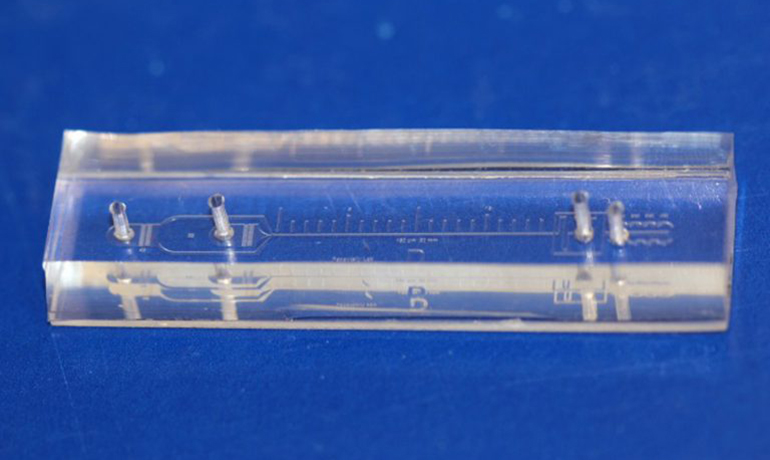
 Researchers at the University of Illinois at Chicago, led by University of Illinois Cancer Center member Ian Papautsky, and Queensland University of Technology of Australia, have developed a device that can isolate individual cancer cells from patient blood samples. The microfluidic device works by separating the various cell types found in blood by their size.
Researchers at the University of Illinois at Chicago, led by University of Illinois Cancer Center member Ian Papautsky, and Queensland University of Technology of Australia, have developed a device that can isolate individual cancer cells from patient blood samples. The microfluidic device works by separating the various cell types found in blood by their size.
The device may one day enable rapid, cheap liquid biopsies to help detect cancer and develop targeted treatment plans. The findings are reported in the journal Microsystems & Nanoengineering.
“This new microfluidics chip lets us separate cancer cells from whole blood or minimally-diluted blood,” said Papautsky, PhD, the Richard and Loan Hill Professor of Bioengineering in the UIC College of Engineering and corresponding author on the paper. “While devices for detecting cancer cells circulating in the blood are becoming available, most are relatively expensive and are out of reach of many research labs or hospitals. Our device is cheap, and doesn’t require much specimen preparation or dilution, making it fast and easy to use.”
